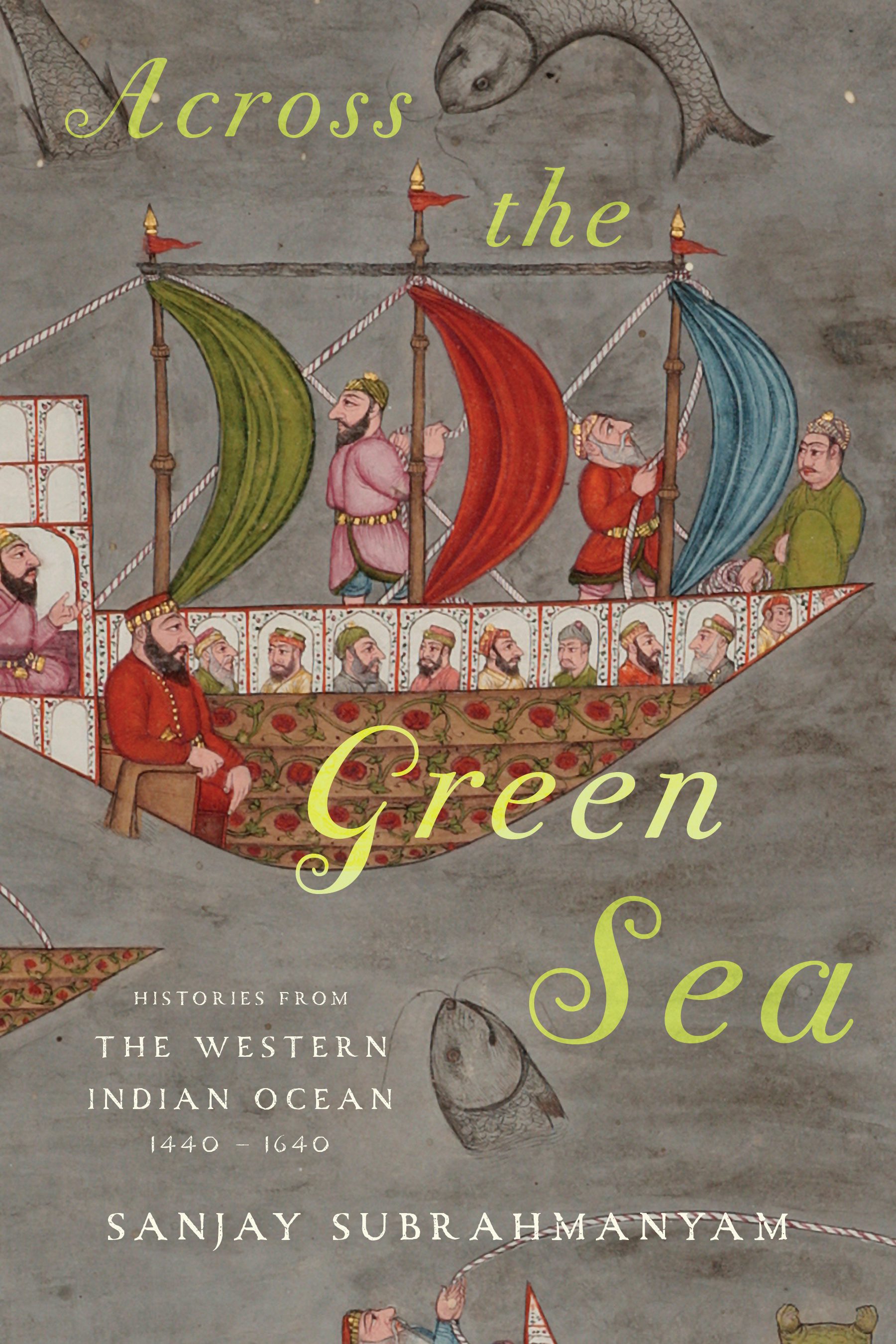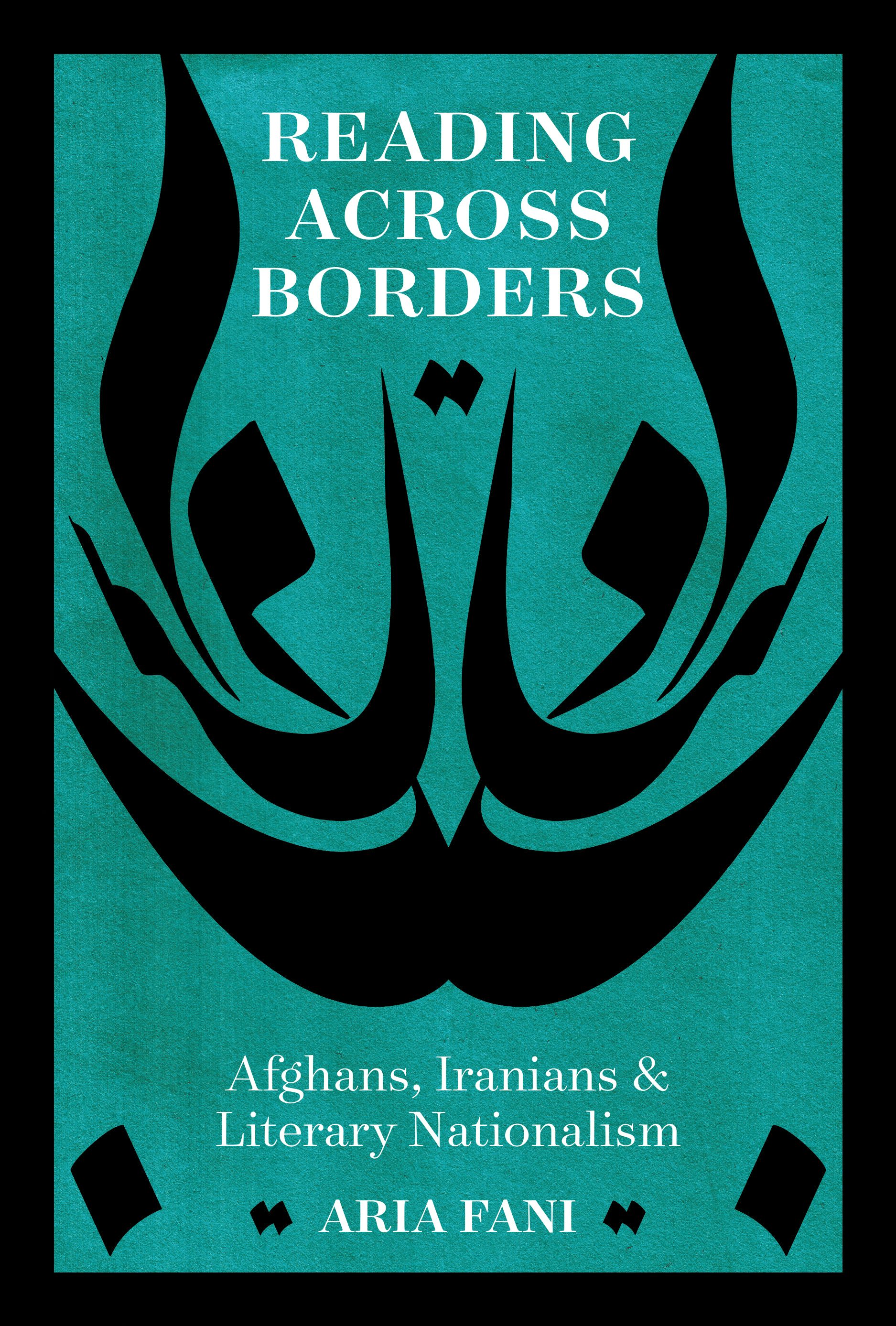A New Interdisciplinary Series in Area Studies
The University of Texas Press is pleased to share the first books in our new series Connected Histories of the Middle East and the Global South. Edited by Afshin Marashi & Houri Berberian, the series seeks to publish original research that moves beyond the conventional geo‐spatial conventions of the area studies paradigm of scholarship. This focus is designed to shift the focus of the series away from work that takes a single nation‐state, national history, or comparative study as its framework of inquiry. Therefore, instead of exploring these societies in relation to each other, the series seeks to study them through one another, that is, through connection, interaction, and encounter.
Out next week, Sanjay Subrahmanyam’s Across the Green Sea is a history of two centuries of interactions among the areas bordering the western Indian Ocean, including India, Iran, and Africa; and Aria Fani’s Reading across Borders explores the dynamic and interconnected ways Afghans and Iranians invented their modern selves through literature, and publishes on April 9.
Read more about these first two books and learn how to query this exciting new series below!
Across the Green Sea
Histories from the Western Indian Ocean, 1440-1640
By Sanjay Subrahmanyam
Beginning in the mid-fifteenth century, the regions bordering the western Indian Ocean—“the green sea,” as it was known to Arabic speakers—had increasing contact through commerce, including a slave trade, and underwent cultural exchange and transformation. Using a variety of texts and documents in multiple Asian and European languages, Across the Green Sea looks at the history of the ocean from a variety of shifting viewpoints: western India; the Red Sea and Mecca; the Persian Gulf; East Africa; and Kerala.
Sanjay Subrahmanyam sets the scene for this region starting with the withdrawal of China’s Ming Dynasty and explores how the western Indian Ocean was transformed by the growth and increasing prominence of the Ottoman Empire and the continued spread of Islam into East Africa. He examines how several cities, including Mecca and the vital Indian port of Surat, grew and changed during these centuries, when various powers interacted until famines and other disturbances upended the region in the seventeenth century. Rather than proposing an artificial model of a dominant center and its dominated peripheries, Across the Green Sea demonstrates the complexity of a truly dynamic and polycentric system through the use of connected histories, a method pioneered by Subrahmanyam himself.
In Across the Green Sea, Sanjay Subrahmanyam once again achieves an impressive feat of scholarship. Through narrative and archival sources in multiple languages, produced in a variety of locations, he brings back to life individuals, communities, networks, and ways of life that have been obscured by an overemphasis on states and empires, and by essentialist and anachronistic understandings of identity and culture. Using the western Indian Ocean between 1440 and 1640 as a case study, this book clearly demonstrates why Subrahmanyam’s “connected histories” approach is one of the best tools for a “polyphonic” history of the early modern world.
Kaya Sahin, author of Peerless among Princes: The Life and Times of Sultan Süleyman
This book is an example of the method of connected histories at its best. His unique command of archival materials, bibliographies, and scholarly traditions allows Sanjay Subrahmanyam to portray the western Indian Ocean between the fifteenth and seventeenth centuries as being at the crossroads of regional and global interactions, while recounting forgotten histories of slaves, warriors, merchants, writers, and rulers. Subrahmanyam places himself in a variety of localities from the Arabian Peninsula to the west coast of India. He listens carefully to the many voices that could be heard across the “green sea” and masterfully evokes the polyphony of this early modern maritime world.
Giuseppe Marcocci, author of The Globe on Paper: Writing Histories of the World in Renaissance Europe and the Americas
Reading across Borders
Afghans, Iranians, and Literary Nationalism
By Aria Fani
The Mexican Revolution (1910–1920) introduced a series of state-led initiatives promising modernity, progress, national grandeur, and stability; state surveyors assessed land for agrarian reform, engineers used nationalized oil for industrialization, archaeologists reconstructed pre-Hispanic monuments for tourism, and anthropologists studied and photographed Indigenous populations to achieve their acculturation. Far from accomplishing their stated goals, however, these initiatives concealed violence, and permitted land invasions, forced displacement, environmental damage, loss of democratic freedom, and mass killings. Mónica Salas Landa uses the history of northern Veracruz to demonstrate how these state-led efforts reshaped the region’s social and material landscapes, affecting what was and is visible. Relying on archival sources and ethnography, she uncovers a visual order of ongoing significance that was established through postrevolutionary projects and that perpetuates inequality based on imperceptibility.
In this fascinating account of the forging of national literatures, Aria Fani focuses on individuals, institutions, and mediums. He introduces us to the likes of the Afghan Sarwar Guyā E‘temādi, who lectured in Pakistan, Iran, and Soviet Central Asia, and the Bombay- and Lausanne-educated Mahmud Afshār, who founded periodicals and literary endowments in Iran. Linking such figures were local literary associations and state-funded universities whose textbooks and journals propagated new tasks for literature within and across national borders. Via what Fani calls his method of ‘East-East comparison,’ this is a milestone study that pushes against the boundaries of Middle Eastern cultural history.
Nile Green, editor of Afghan History through Afghan Eyes
Reading across Borders is a groundbreaking critique of the very concept of literature in Iranian and Afghan contexts. With an outstanding command of literary history, primary texts, and the appropriate theoretical underpinnings, Aria Fani invites us to question decades of received wisdom that have relied on the constructed exceptionalism and glorification of ‘Persian literature.’ Through such a radical reassessment, Fani paves the way for a vastly more inclusive and socially responsible way of approaching Persian-language literary production, giving the reader the tools for a long overdue problematization of the myths of national identity and unexamined adages on the canon of Persian literature.
Leyla Rouhi, Mary A. and William Wirt Warren Professor of Romance Languages, Williams College
About the Series
Edited by Afshin Marashi & Houri Berberian
Connected Histories of the Middle East and the Global South is an interdisciplinary book series that seeks to publish original research that moves beyond the conventional geo‐spatial conventions of the area studies paradigm of scholarship. This focus is designed to shift the focus of the series away from work that takes a single nation‐state, national history, or comparative study as its framework of inquiry. Therefore, instead of exploring these societies in relation to each other, the series seeks to study them through one another, that is, through connection, interaction, and encounter. Building on emerging scholarship shaped by “connected histories,” “transnationalism,” and “global history,” the series seeks to support research investigating the circulations of peoples, objects, texts, and ideas that link the societies of the Middle East to Asia, Africa, and Latin America. Focusing primarily on the varied forms of these South–South connections, the series will emphasize themes of mobilities, migration, diaspora, capital flows, pilgrimage, transregional subaltern connectivities, as well as networks of activism, culture, and ideology. While the focus of the series is primarily on the modern period, the series is also open to trans‐temporal scholarship that challenges the historiographic divide between the early modern and modern eras. Collectively, the books published in the series will highlight areas of research that have fallen outside, between, or at the margins of conventionally defined geographies of scholarship.
AFSHIN MARASHI is the Farzaneh Family Chair and Professor in Modern Iranian History at the University of Oklahoma. He is the author of Exile and the Nation: The Parsi Community of India and the Making of Modern Iran.
HOURI BERBERIAN is the Meghrouni Family Presidential Chair in Armenian Studies and a professor of history at the University of California, Irvine. She is the author of Roving Revolutionaries: Armenians and the Connected Revolutions in the Russian, Iranian, and Ottoman Worlds.





